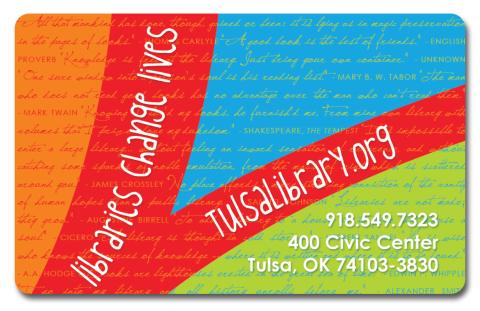
The Great Decisions discussion series explores how remote global challenges are increasingly impacting our communities.
A kick off is planned for Jan. 25, 2:30-4:30 p.m., in Hardesty Regional Library’s Frossard Auditorium, 8316 E. 93rd St.
The featured speaker is Janet Levit, University of Tulsa College of Law Dean and Dean John Rogers Endowed Chair. Levit earned her J.D. in 1994 from Yale Law School where she was book reviews and articles editor of the Yale Journal of International Law. She served as law clerk for Stephanie K. Seymour, Chief Judge of the U.S. Court of Appeals for the Tenth Circuit, and for the Chair of the Inter-American Commission on Human Rights of the Organization of American States. She also completed internships at the U.S. Embassy in Brazil and the Federal Reserve Bank of New York.
At the event participants can join a discussion group focusing on any of this year’s featured topics. An optional $15 briefing booklet presents articles on these featured topics.
Russia and the Near Abroad
As calls for closer ties with the EU failed to be met, Ukrainians took to the streets in in November 2013. As the movement later known as the Euromaidan, or “Euro Square,” pulled western Ukraine closer to its European neighbors, another powerful force threatened to tear away the country’s eastern half: Russia.
Privacy in the Digital Age
The idea of “privacy” has undergone significant changes in the digital age, as has the idea of privacy “harm.” Fearful of British spying, influence and intervention, the founding fathers granted citizens significant protections in the Constitution. Now, the tables have turned: Concerns about what some see as a U.S. “dragnet” and unwarranted privacy intrusions have compelled other countries to revamp their own privacy protections
Sectarianism in the Middle East
Many of the current conflicts in the Middle East have been attributed to sectarianism, a politicization of ethnic and religious identity. From the crisis in Iraq and Syria to the tension between Iran and Saudi Arabia, the struggle between Sunni and Shi‘i groups for dominance is tearing apart the region and shows no signs of abating.
India Changes Course
Fed up with corruption, dynastic policies and ineffective public services, Indian voters catapulted Narenda Modi and his Bharatiya Janata Party to power in the country's 2014 elections. For voters, Modi embodied real change and an India that wasn't stumbling, but running, to greatness. But for the U.S., change in India brings its own set of unknowns, heralding an age ruled by a prime minister new to national office and other policymakers who have been out of the public eye for a decade.
U.S. Policy Toward Africa
Africa is in the midst of an unprecedented transformation. The continent is home to some of the fastest growing economies in the world, and it’s become a draw for foreign investors from across the globe. After the “Obamamania” of 2008 died down, though, the realization that Obama wasn’t going to overturn, or even prioritize, U.S. Africa policy kicked in.
Syria's Refugee Crisis
Syrians have for a century welcomed over a million refugees from Armenia, Palestine, Iraq and other countries around the region. Now, thanks to a multiyear civil war, they are on track to become the source of the world’s largest refugee population in a matter of months. As Jordan, Lebanon, Turkey and other neighbors strive to accommodate the millions of Syrians, the risk of allowing Syrians to become dependent on emergency aid and forming a “lost generation” remains.
Human Trafficking in the 21st Century
Human trafficking represents a multibillion in international trade per annum and continues to be one of the fastest growing criminal industries. While undeniably a global phenomenon, the U.S., as one of the world’s leading human trafficking importers, bears a special responsibility to combat this practice.
Brazil's Metamorphosis
Brazil — it’s the “B” in the acronym BRICS, five emerging economies once seen as soon-to-be superpowers. After economic troubles in the 1990s, Brazil has risen to new global prominence — it’s drawing in more investment, working on global issues ranging from climate change to peacekeeping, and even hosting the 2016 Olympics. But some of Brazil’s trickiest problems — deep divisions over how to tackle serious income inequality, weak civic institutions and poor regional leadership — have held it back.
Great Decisions is sponsored nationally by the Foreign Policy Association and locally by the Friends of the Tulsa City-County Libraries. The goal of the program is to serve as a catalyst for developing awareness, understanding and nonpartisan programs.
For more information on Great Decisions, call 918-549-7408, or visit the Friends webpage, www.tulsalibrary.org/friends.
# # #